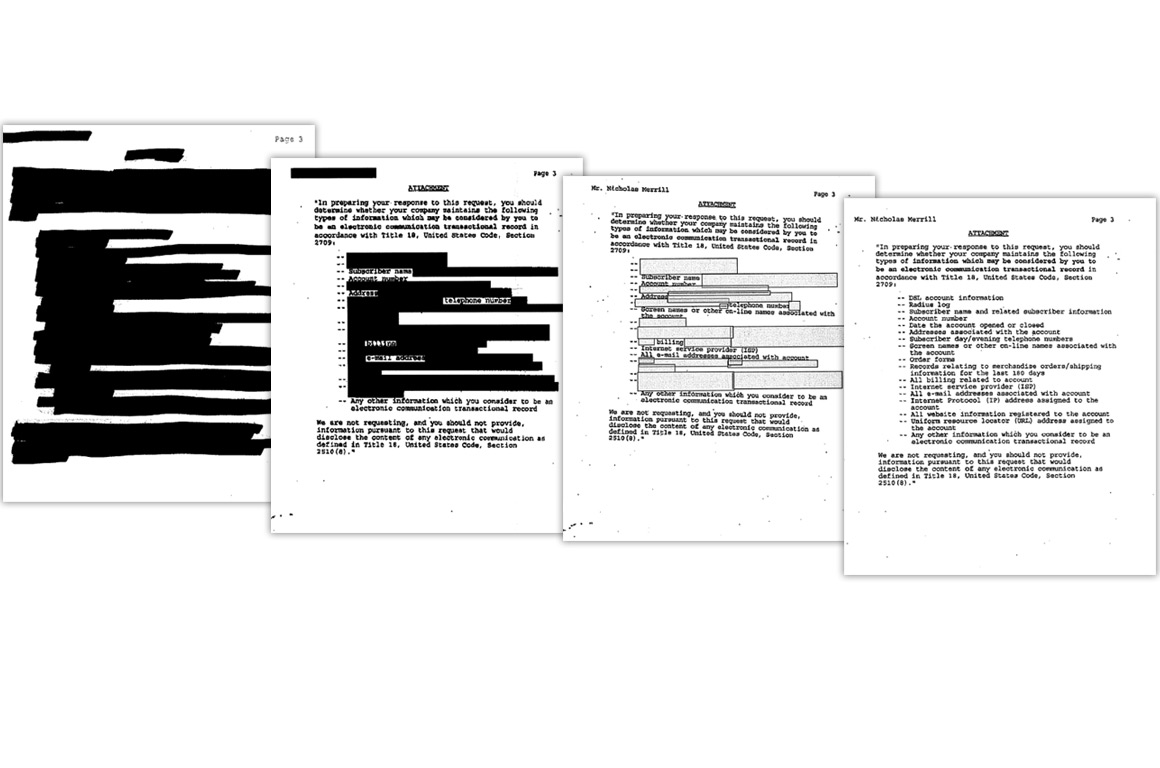ACLU Blasts Justice Department's Attempts to Manipulate Truth About Patriot Act Ruling
FOR IMMEDIATE RELEASE
NEW YORK - In what appears to be a concerted campaign to mislead the American public, the Department of Justice and some of its Republican allies in Congress are attempting to minimize the impact of the landmark ruling this week against so-called National Security Letters and the provision of the Patriot Act that broadened their use by the FBI.
"The Justice Department should spend less time spinning this landmark decision and more time trying to fix the law," said Anthony D. Romero, Executive Director of the American Civil Liberties Union, which brought the successful challenge to the Patriot Act provision along with the New York Civil Liberties Union.
At issue is a Sept. 29 ruling by a federal court striking down a provision that gave the FBI virtually unchecked authority to issue "National Security Letters" to obtain sensitive customer records from Internet Service Providers and other businesses without judicial oversight. The Patriot Act dramatically expanded that provision by permitting the FBI to obtain records of people who are not suspected of any wrongdoing.
In an e-mail message sent yesterday to Senate leaders and their staffers, a Senate Republican Policy Committee analyst claimed that news reports that the ruling had invalidated a Patriot Act provision were "false." The analyst, Steven J. Duffield, said that because the court's ruling also struck down the underlying 1986 law that the Patriot Act amended, the decision should not be viewed as a blow to the Patriot Act, as reported by many national newspapers.
ACLU Associate Legal Director Ann Beeson called the e-mail message a desperate attempt to insulate supporters of the Patriot Act from criticism. "There is no question that the court struck down a provision of the law that was dramatically expanded by the Patriot Act."
Beeson noted that under the Patriot Act, national security letters (NSLs) can now be used to obtain information about entire groups of people who communicate online, including members of non-profit advocacy groups such as the NAACP or the Heritage Foundation.
In striking down the power, Judge Victor Marrero specifically pointed out that the FBI can now use NSLs to obtain lists of people who have e-mail accounts with given political organizations - a power that did not exist prior to the Patriot Act.
"The FBI theoretically could issue to a political campaign's computer systems operator a Section 2709 NSL compelling production of the names of all persons who have e-mail addresses through the campaign's computer systems," Judge Marrero said.
As enacted in 1986, the statute allowed the FBI to issue national security letters only where it had reason to believe that the subject of the letter was a foreign agent. Section 505 of the Patriot Act removed the individualized suspicion requirement and authorizes the FBI to use national security letters to obtain information about groups or individuals not suspected of any wrongdoing. The FBI need only certify - without court review - that the records are "relevant" to an intelligence or terrorism investigation.
In his ruling, Judge Marrero recognized that the Patriot Act represented a "major revision" to the NSL power because it replaced the prior requirement of individualized suspicion with a "broad standard of relevance to investigations of terrorism or clandestine intelligence activities."
Notably, Judge Marrero explicitly rejected the government's increasing move toward secret and coercive investigatory tactics in the post-9/11 environment. "It is precisely times like these that demand heightened vigilance, especially by the judiciary, to ensure that, as a people and as a nation, we steer a principled course faithful and true to our still-honored founding values."
The case is Doe and ACLU v. Ashcroft et al., No. 04-CIV-2614. Attorneys in the lawsuit are Beeson and Jameel Jaffer of the ACLU and Arthur Eisenberg of the NYCLU. The court's ruling is online at /node/24814.
An ACLU web feature about the case is online at www.aclu.org/nsl.
Stay Informed
Sign up to be the first to hear about how to take action.


